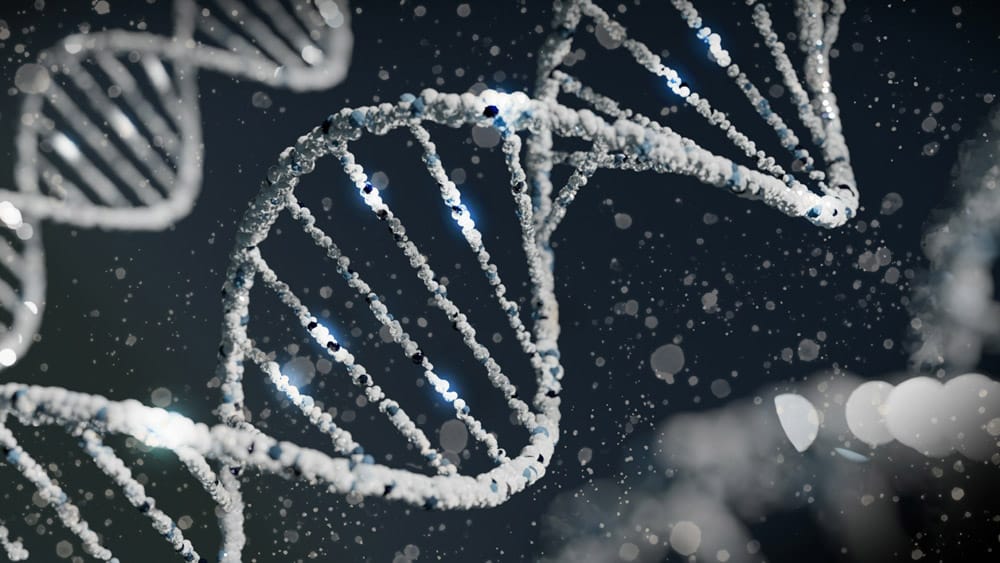The Role of Genetic Testing in Personalizing Nutrition and Exercise Plans

DNA-based personal health plans have transformed from science fiction to available fitness options. Through DNA testing kits and sophisticated DNA analysis at home, people now get valuable information about their body's response to food, exercise, and recovery methods. How reliable is this data? Does genetic information have the potential to lead our dietary choices and fitness practice?
The process of genetic testing combines analysis of DNA with tests that show what information it displays to help you build your health and wellness practice. Genetic testing reveals information about your DNA.
Genetic testing uses samples of your DNA, usually a saliva swab, to check for gene variations linked to physiological characteristics like metabolic rate and muscle structure as well as nutrient digestion efficiency and injury potential. Merging your DNA's basic information with health and wellness knowledge represents the services created by 23andMe and similar companies together with Nutrigenomix and DNAfit.
Genetic tests perform targeted scans to detect biological markers linked to features impacting how we respond to physical exercise or nutritional intake. Gene variants have the ability to show us different results for our body's processing of caffeine as well as revealing pizza sensitivity to carbohydrates and vitamin D level predisposition.
Your DNA Can Direct Nutritional Plans
Nutritional personalization stands as one of genetic testing's most advanced possibilities. Nutrigenomics studies the impact of personal genetic variations on the body's ability to process food alongside its nutrients.
Some ways your DNA could affect your dietary choices include:
- If you have lactose intolerance, genetic markers will help you identify your probability of lactose intolerance before dairy consumption.
- Your body's caffeine metabolism speed depends on certain genes that impact both your sleeping quality and anxiety levels as well as blood pressure analytics.
- Your genetic structure determines whether you process fats better than other people, which may determine your dietary reaction when consuming high-fat meals.
- Your DNA shows indications for diminished nutrient absorption of B12 together with iron and vitamin D.
People can reformat their dietary choices to work harmoniously with their biological makeup when they understand these insights. People need individualized nutritional strategies based on their body's customized reactions to different foods rather than standard meal plans.
Genetic Data Helps Create Perfect Exercise Strategies
Genetic information provides useful guidelines to personal fitness strategy development. A number of DNA tests determine the presence of genes which relate to your body's proportions of muscle fibers and show your potential endurance performance capabilities and indications of recovery rates. The strategy focused on intelligent training development aims to improve your fitness results beyond basic increased effort alone.
Genetic information impacts workout programming in the following ways:
- Your genes determine if you will excel at strength training or sprints because they show your fast-twitch muscle dominance or point to suitability for endurance sport performance based on slow-twitch dominance.
- The presence of particular gene variants allows fitness experts to assess your body's aerobic capacity, which influences their choice of cardio instruction.
- Your soft tissue injury risk rises when your genes impact collagen strength combined with inflammation management capabilities.
- Information from your genes hints at exercise recovery speed, which affects how you should space out your workouts and how intense they should be.
Genetic insight is not fixed but it provides useful base information for your training decision-making process.
Genetic Test Results: Are They Reliable?
Genetic testing shows substantial promise for fitness and nutrition applications, but it remains an unproven solution for all health recommendations. Direct-to-consumer tests present claims based on correlations and scientific health research regarding gene-health relationships remains in its early stages of development.
The way we respond to food and exercise depends enormously on our daily lifestyle factors like sleep patterns, stress management, and living environment settings. Your full health profile combines genetics with multiple other variables. The two outcomes supported by a DNA report, including obesity risk and recovery speed, will prove conditional on your daily lifestyle choices.
Numerous research experiments have found advantages to using genetic-based customized plans. One study from 2015 that appeared in Obesity showed people using DNA-based eating plans lost greater amounts of weight than those who followed usual nutritional advice. The scientific community remains skeptical because many studies essentially fail to replicate initial promising results from genetic recommendations. Further research is essential to determine their accuracy and reliability.
DNA-Based Personalization Helps People Receive
Genetic testing performed responsibly delivers multiple user advantages.
- Learning how your body may react to certain foods or exercises can build self-awareness for better dietary decisions.
- Professionally tailored recommendations increase fitness plan stickiness because people find them more meaningful and actionable.
- Genetic insights enable early detection of long-term health risks, enabling better management of nutritional deficiencies alongside metabolic disorder detection.
- DNA testing helps fitness enthusiasts discover where conventional fitness advice cannot provide adequate guidance. Genetic testing may help you find an alternate approach when general programs fail to produce the progress you desire.
All Limitations with Ethical Questions
The method has several key limitations despite its undeniable attractiveness.
- Most consumer DNA tests analyze only small portions of your genetic material while struggling to properly interpret complex genetic traits.
- When you send your DNA samples to a company, you will want to know how your genetic data gets stored and used and how secure it remains. The storage procedure for your personal data needs to be checked regularly.
- If you do not get professional advice, your genetic results might get misunderstood or used incorrectly.
- DNA-based plans which try to provide tailored recommendations choose categories that overlook certain nuances of individual genetic diversity.
The researchers also remind us that our DNA does not dictate our fate. The gene that increases your likelihood of weight gain does not guarantee you will put on pounds. The majority of cases show healthy habits will remain more important than genetics themselves.
Genetic Testing Should Be Your Next Step
Genetic testing offers meaningful insights for people who already track their workouts and monitor their macros while attempting to improve their fitness routines. Some weight loss methods perform better with genetic testing data offering recommendations that boost your personal fitness strategy.
Professional medical advice must always come first before any genetic testing results because it should function as a supplementary tool instead of an exclusive decision-making method. Treat genetic testing like an instrument that provides useful information. When seeking testing, it is advisable to consult a nutrition professional unit trained in genetics followed by a sports medical doctor for sound interpretation of your results.
Final Thoughts
A DNA-based approach for customized nutrition and exercise plans is available for patients who want personalized approaches to their wellness programs. Fitness goals aligned with an individual's unique biological makeup represent an exciting area of frontier research while the related scientific field remains in developmental stages.
Fitness professionals who want better understanding of their body or competitive performance typically gain important insights from genetic testing. Your data becomes more useful when you use expert guidance alongside expert advice and persistent healthy practices.



